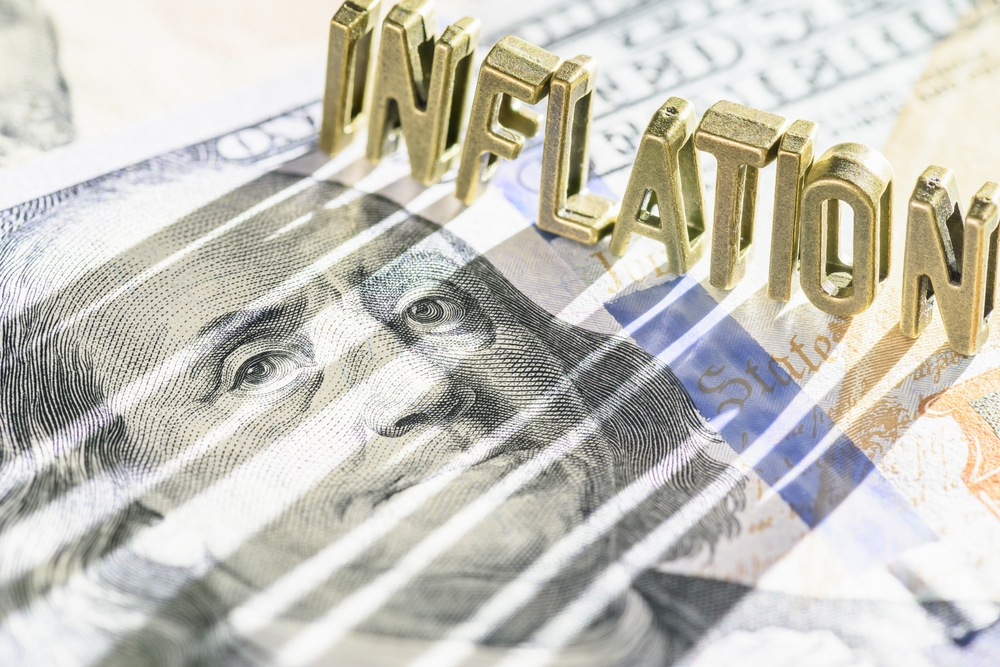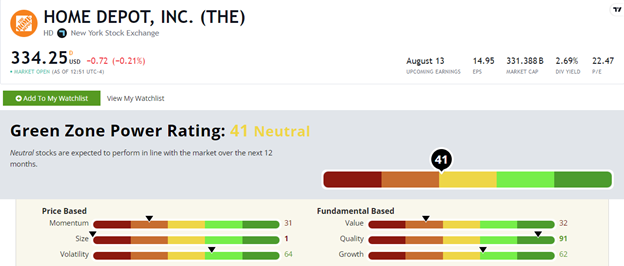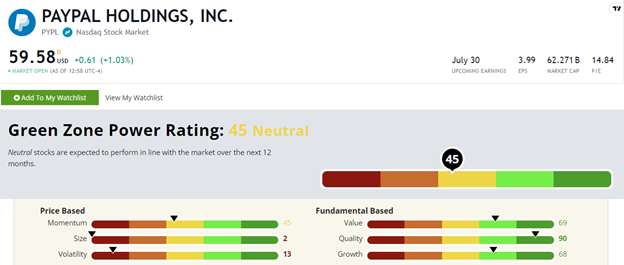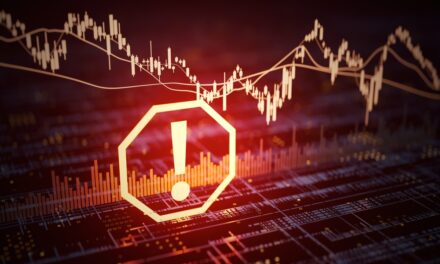Back in January, we were worried inflation was going to tank the market again.
Fast forward to now, and the inflation situation is looking better every month…
We’re still contending with high prices for everything from eggs to insurance, but that hasn’t stopped investors from pushing major indexes higher in 2024.
Did anyone expect year-to-date numbers like this:
- The S&P 500 is up more than 16%.
- The Nasdaq Composite is up a massive 23%.
- The Dow Jones Industrial Average is up 4%.
We’ll have a deeper analysis of these numbers (especially the lagging Dow) in our “midyear market report” in Monday’s Money & Markets Daily.
Today, I want to revisit two stocks I wrote about in the early days of 2024. Both were pandemic darlings, and both have a direct correlation to inflation.
Let’s see if either looks any better in Adam O’Dell’s Green Zone Power Ratings system.
The Home Improvement Boom … and Fizzle
My wife and I are working on our townhome … slowly.
We bought during the pandemic, scrounging up just enough to secure a mortgage.
After unpacking and settling, we were finally ready to tackle our own project. The problem was thousands of bored do-it-yourselfers stuck at home due to pandemic lockdown protocols beat us to every last brushed bronze showerhead in South Florida.
By the time we started shopping for our bathroom remodel, material prices were through the roof!
To illustrate the trend, Home Depot’s trailing 12-month revenue was $110 billion on January 31, 2020. That number jumped to $132 billion in January 2021 and then again to $151 billion in 2022! Revenue growth peaked at $157 billion in January 2023 and has been slowly trending lower again.
Why the history lesson?
Because Green Zone Power Ratings says Home Depot Inc. (NYSE: HD) still isn’t on pace to crush the market. Back in January, the stock rated a “Neutral” 57 out of 100.
Its rating has declined to 41 out of 100 now, and it’s a single point away from falling into “Bearish” territory.
With a 91 rating on Quality, it’s clear that Home Depot is using that flood of revenue to shore up its business.
What’s most telling about HD stock is its Momentum rating falling 40 points to 31 since January.
While the broader market has ripped higher in 2024, HD stock has fallen 3%.
This was one to watch in January, but it’s clear that investors are not interested in Home Depot stock right now.
The “New” Way to Pay
My wife and I aren’t the only weekend warriors out there, of course. But as I mentioned above, material costs have only gone up.
One way to fund these DIY projects is through “buy now, pay later” payment methods.
And who doesn’t love the idea? Get the thing you want, as long as you promise to pay for it in small chunks over time.
In December 2023, almost one-third of Americans said they were considering buy now, pay later loans to fund certain purchases, according to a LendingTree survey.
With higher prices and stagnant wage growth, this idea could gain more steam.
Let’s see how one of the biggest names in this space looks, according to Green Zone Power Ratings.
Since January, PayPal Holdings Inc.’s (Nasdaq: PYPL) rating has improved to a “Neutral” 45 out of 100 on Adam’s system.
On the fundamental side, PYPL is solid. Its Value has improved from 55 to 69, and it sports excellent ratings on Quality and Growth.
Six months later, PayPal’s price-based metrics remain worrisome. PYPL’s ratings on Momentum, Size and Volatility have improved, but not significantly (though Momentum is now 45 compared to 21 at the start of the year).
The stock is down almost 3% year to date.
This doesn’t spell doom for PayPal. It’s a solid business based on fundamentals.
But if you’re looking to capitalize on consumers turning to buy now, pay later platforms in 2024, Green Zone Power Ratings says to look elsewhere.
Inflation is trending in the right direction, but both of these stocks clearly aren’t participating in the broader bull market.
Avoiding the laggards that can drag your portfolio down is just as important as finding stocks that are crushing the market.
Until next time,

Chad Stone
Managing Editor, Money & Markets






